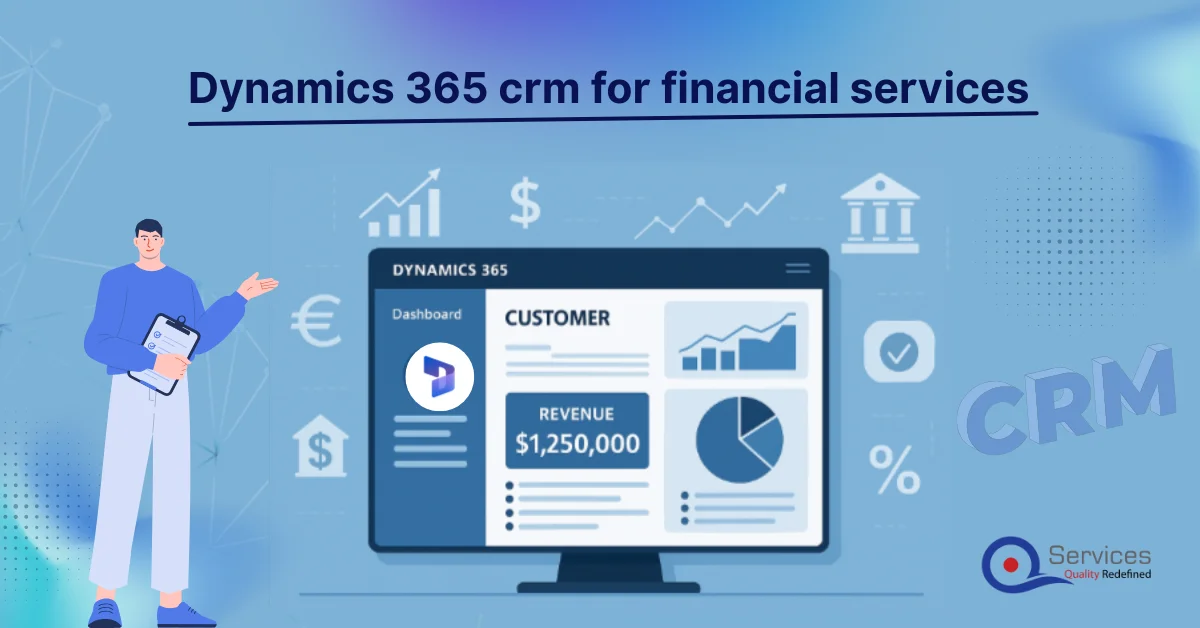
Rewards
.





CANADA
55 Village Center Place, Suite 307 Bldg 4287,
Mississauga ON L4Z 1V9, Canada
Certified Members:
.



Home » 7 things to Avoid When Using AI for Customer Engagement

Your business is growing, and you need more computing power to handle increasing demands. You could invest in costly hardware, or you could embrace the cloud. Enter Amazon EC2 and Azure VM—two of the most powerful solutions in the cloud market. They’ve made scaling your infrastructure as easy as turning a knob. But which one suits your needs best? No matter if you’re navigating the fast-paced demands of a startup or addressing the compliance complexities of a large enterprise, finding the right cloud solution is crucial.
This blog unpacks the <strong>Amazon EC2 vs. Azure VM</strong> debate in detail to help you make the best choice for your business.
AWS EC2 is a cloud computing pioneer that offers incredible flexibility. Whether you’re building a simple app or handling complex tasks like machine learning, EC2 gives you a lot of choices. Scaling up or down to meet your needs is easy, and it’s trusted by businesses of all sizes around the world, from small startups to huge enterprises.
In contrast, Azure Virtual Machines offer a similar range of computing options but are particularly appealing for organizations that depend on Microsoft tools. Azure VMs make it easy for businesses to migrate their on-premise Microsoft workloads to the cloud, thanks to tight integration with Microsoft’s tools. If your business is already invested in tools like Windows Server, SQL Server, or Office 365, Azure VMs might be the perfect match for you. Not only are they cost-effective, but with Azure VM Scale Sets, you can easily scale your cloud infrastructure while keeping things available and reliable.
Objective of the Analysis:
Address key questions:
Let’s take look at a comparative analysis to guide businesses in choosing the right platform based on their needs.
Amazon Web Services (AWS): (h3)
Amazon Web Services (AWS) is known for offering powerful cloud services, and EC2 is a prime example of that. EC2 makes it easy for businesses—whether small or large—to pick the right cloud computing resources for their needs. With a variety of instance types and global coverage, EC2 lets you quickly scale your infrastructure as you grow.
Key Features of AWS EC2: (h3)
Microsoft Azure: (h3)
Azure is quickly becoming one of the top cloud providers, especially for big companies. Its hybrid cloud features are one reason for this, as businesses can combine their existing on-site systems with cloud resources for a smooth experience. With over 60 regions worldwide, Azure is reliable no matter where your business operates.
What makes Azure stand out is how well it integrates with Microsoft tools like Office 365 and Dynamics. If your company already uses these tools, moving to Azure makes everything more efficient. Plus, Azure offers features to help your business stay compliant with regulations with minimal effort.
In short, Azure’s strong connections with enterprises, global reach, and powerful hybrid solutions make it a great cloud platform for businesses.
AWS EC2 Instance Types: (h4)
General Purpose Instances are perfect when you need a well-rounded solution for many different tasks:
Compute Optimized: These are ideal for tasks that need heavy processing power:
Memory Optimized: Great for workloads that need lots of memory:
GPU Instances: Used for graphics-intensive tasks or machine learning:
Bare Metal Instances: For those who need direct access to the physical hardware itself, without the virtualization layer.
Key Features of AWS EC2: (h4)
Azure VM Sizes and Series: (h4)
When it comes to storage, <strong>AWS EC2</strong> offers multiple options to accommodate various business needs. Whether you’re storing rapidly changing data or keeping long-term archives, AWS has the right solution. Elastic Block Store (EBS) provides reliable block storage for everyday applications, while S3 offers scalable object storage that’s perfect for everything from backup to big data. For long-term storage, AWS Glacier is an excellent and cost-effective option. If your application demands high performance, AWS also provides specialized solutions to handle more intensive workloads.
Azure, on the other hand, has its own suite of strong storage solutions. Azure VMs are equipped with Azure Disk Storage for reliable, persistent storage needs and Blob Storage for unstructured data like media files and logs. When you’re looking for long-term storage, Azure Archive Storage offers an affordable solution. For workloads with high performance requirements, Azure provides Ultra Disk Storage, optimized to handle applications with heavy I/O demands.
C ) Networking: AWS EC2 vs Azure (h2)
AWS Virtual Private Cloud (VPC): AWS allows businesses to build their own isolated networks within the AWS cloud using Virtual Private Cloud (VPC). VPC gives you complete control over your network environment, ensuring the security of your resources. For handling incoming traffic, AWS’s Elastic Load Balancer (ELB) automatically distributes the load across different resources such as EC2 instances, ensuring your applications stay online and performant.
Azure Virtual Network (VNet): Similarly, Azure offers Azure Virtual Network (VNet), enabling users to create segmented networks within the Azure cloud for better organization and security. To manage application traffic, Azure uses the Azure Load Balancer, which ensures that traffic is evenly distributed across multiple virtual machines, keeping your services accessible and running smoothly.
AWS and Azure are both excellent choices for businesses that require Linux or Windows Server operating systems. Both platforms offer flexibility in how Windows licenses are handled businesses can either bring their existing licenses or buy new ones through the respective cloud platforms. This flexibility helps companies save costs while efficiently managing their workloads, regardless of the operating system they use.
E) Security and Compliance: (h2)
AWS Security: AWS provides solid security with IAM, which helps you manage who can access your cloud resources and what actions they can take. It’s simple to create users and assign permissions based on roles. AWS also has great compliance support, meeting standards like HIPAA for healthcare and GDPR for data privacy in the EU, so businesses can be sure they’re following the rules.
Azure Security: Azure also offers strong security through AAD (Azure Active Directory), making it easy to control access to your resources, both in the cloud and on-premises. AAD integrates well with Microsoft’s other tools, making it especially convenient for businesses already using the Microsoft ecosystem. Azure’s compliance features make it easier to meet global regulations, especially in hybrid cloud setups.
Get free Consultation and let us know your project idea to turn into an amazing digital product.
AWS EC2 Pricing: (h3)
Azure VM Pricing:
AWS and Azure both handle demanding workloads with ease. AWS has 31 regions and 99 availability zones, ensuring reliable performance almost anywhere. Azure’s 60+ regions take it a step further for businesses needing strong regional coverage. If you’re looking for consistency, AWS has you covered. If you want more local flexibility, Azure is a great choice.
Keeping Things Running
AWS focuses on minimizing downtime with Auto Recovery and solid backup tools, making it ideal for disaster recovery. Azure’s Availability Sets and Zones keep your apps running smoothly, even during disruptions, making it a go-to for hybrid and multi-cloud systems. Both platforms do a great job of keeping businesses online; it just depends on what you need.
AWS provides a powerful and interconnected ecosystem that emphasizes scalability and innovation. Services such as Lambda for serverless applications, RDS for streamlined database management, and S3 for secure storage come together effortlessly, making it ideal for tackling complex tasks.
Azure emphasizes productivity and enterprise solutions with seamless integration into Office 365 for collaboration, Visual Studio for developers, and the .NET framework for custom applications. This setup provides a strong advantage for organizations already using Microsoft tools.
Hybrid and Multi-cloud Solutions (h3)
AWS Outposts enables businesses to deploy AWS services and infrastructure on-premises for hybrid environments, perfect for workloads requiring low latency and local data processing.
Azure’s Azure Arc extends the Azure platform to on-premises, edge, and other clouds, making it a go-to solution for hybrid and multi-cloud strategies, ensuring centralized management of diverse environments.
Azure VM Use Cases:
Ease of Setup and Management:
Documentation and Community Support:
Customer Support Options:


Pipeline failures can be expensive and harmful to the environment. Companies are using IoT applications in the oil and gas industry to prevent these breakdowns and stay ahead of problems.
![Azure IoT vs AWS IoT vs Google IoT Pricing: Feature Comparison Chart for Enterprise [2025]](https://www.qservicesit.com/wp-content/uploads/2025/03/Microsoft-Teams-vs-Slack-vs-Zoom-TCO-Analysis-for-Enterprise-Organizations-2.webp)
The Internet of Things (IoT) helps businesses run better by connecting devices, collecting information, and improving choices. But picking the best IoT cloud provider can be confusing. The main three are AWS IoT vs Azure IoT vs Google IoT.

In this blog, we’ll explore how these advances are shaping the future of field services and how companies are adapting to stay ahead in a competitive market. What are the key changes that businesses need to embrace to stay relevant and efficient?
AI that doesn’t reflect your brand’s tone can confuse or alienate customers. For instance, a formal financial service brand using a playful AI tone can seem unprofessional, leading to a disconnect between the brand and its customers.
Sentiment analysis helps detect customer frustration or confusion by analyzing the tone and content of interactions. This allows timely human intervention, improving customer satisfaction and preventing negative experiences.
Implement clear AI escalation paths and ensure easy access to human agents. This prevents customer frustration and ensures that complex issues are resolved by humans when necessary.
Human agents can provide the empathy and discretion needed for sensitive issues. Automating these interactions can lead to misunderstandings and damage customer trust.
Regularly updating and training AI systems ensures they adapt to new data and improve over time. This maintains high performance and ensures AI continues to meet customer needs effectively.
Provide comprehensive training on AI tools, ensure agents understand how to leverage AI effectively, and continuously update training based on feedback. This helps agents use AI to its full potential and improve service quality.
AI can direct customers to relevant knowledge base articles and solve issues within the conversational interface. This improves efficiency and satisfaction by providing quick and accurate information.
Data analysis can reveal patterns and tasks that are best suited for AI. This ensures effective and efficient automation, allowing human agents to focus on more complex issues.
A feedback loop allows continuous improvement of AI systems based on agent and customer input. This enhances performance and ensures AI meets evolving customer needs.
This approach can undermine the value of human agents and miss opportunities for empowerment and improved customer service. AI should be seen as a tool to enhance, not replace, human capabilities.
.





55 Village Center Place, Suite 307 Bldg 4287,
Mississauga ON L4Z 1V9, Canada
.




Founder and CEO

Chief Sales Officer

🎉 Thank you for your feedback! We appreciate it. 🙌